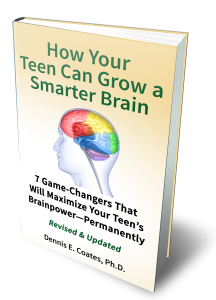Driving home, I saw a young man walking on the sidewalk. Shirtless in the midday sun, he sported a tanned, muscular body. He seemed oblivious to a future consequence: excessive exposure to solar radiation (sunlight) can cause skin cancer. The sight reminded me of a college student I spoke to recently, who had neglected to study for spring semester final exams. When I reminded him that he needed a B average to maintain his scholarship, he looked up from his video game and said, “Oh, yeah.”
And here in Texas, the Delta variant of Covid-19 is surging, mostly among young adults. This mutation spreads dozens of times faster and is much deadlier than the original virus. Nearly all the hospitalizations involve unvaccinated people. The apparent lack of concern for regrettable future consequences is amazing.
But I shouldn’t be surprised. Not everyone is guided by thoughts about future consequences. Considering future consequences is a mental habit, one of many skills handled by the prefrontal cortex, and not everyone has it. The neural pathways for this skill have to be connected through repeated use.
And the prime-time window for developing adult thinking skills is adolescence, as I explain in my book, How Your Teen Can Grow a Smarter Brain. The reality is that many young people actually are developing this capacity for future thinking, whether they are conscious of doing so or not. If I do this, there could be a consequence. If I don’t do this, there could be a consequence.
Think about it: Most of the serious talks you’d like to have with your child – about sex, for example – won’t make much sense if they aren’t able to appreciate what it has to do with their future. While it’s true that the future exists only in our imagination, eventually the future becomes today. Thinking about the future is the first step to setting goals and making plans, so we make choices and take actions to get what we want. It’s a habit of mind every parent should want for their child. But kids have to get the reps to wire their brain for this pattern.
But many teenagers aren’t in the habit of reflecting on future consequences. They’re exclusively focused on enjoying the present. Eventually, unfortunate things happen to them that could have been avoided. Obese teens are diagnosed with Type 2 diabetes. Kids get addicted to nicotine and other substances. Girls get pregnant. Distracted teen drivers die in car crashes.
Parents can help by asking open-ended questions that cause their child to ponder the future: “What are you planning to do this weekend?” “What do you want to do when the school year is over?” “How do you see yourself using the car once you get your license?” “What can you do to raise your chances of being picked for the team?” “Want do you want to do after high school?” “If you do this, what might happen?” With enough questions like this, a child’s brain can be stimulated to wire itself.
These and many other questions that encourage a child to foresee consequences, set goals, and make plans are outlined in Chapter 5 of How Your Teen Can Grow a Smarter Brain. With your help, your child can mature into the kind of adult who who habitually envisions a desired future and does what’s needed to achieve it. You can grow the bond with your child through better listening. Download the FREE ebook, Listening to Understand.


